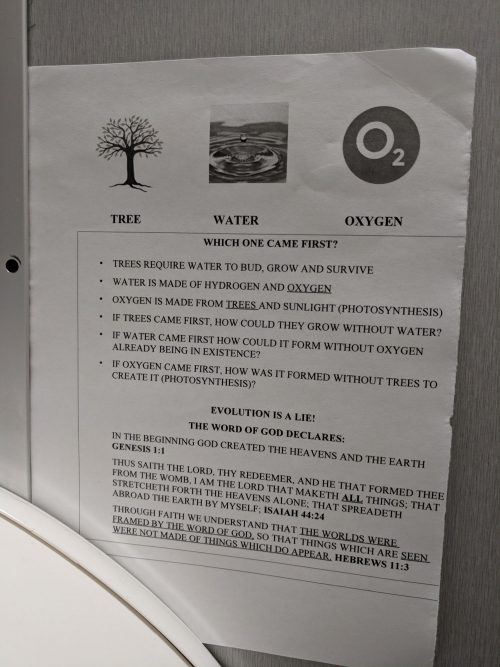This is a press release from Monette for an upcoming conference, Secular Women Work. They have a Kickstarter for donations.
Secular Woman and Minnesota Atheists are bringing back their activist training conference, and they’re using Kickstarter to make it possible. The Secular Women Work conference will be held in Minneapolis this August 24–26 and features accomplished activists Jessica Xiao, former program assistant at the American Humanist Association and current Prison Book Club Coordinator, and Greta Christina, writer and cofounder of Godless Perverts. Mandisa Thomas will be returning as well after another successful three years for Black Nonbelievers.
Come August, the conference will feature a full slate of exclusively women and genderqueer speakers. The original conference in 2015 highlighted the importance of “women’s work” in the secular movement. Secular Woman president Monette Richards explains, “The recent revelations that atheist figureheads and organizations knew and did nothing about Lawrence Krauss long before his recent #metoo reckoning demonstrate how far we still have to go as a movement in valuing the contributions of women. There’s no better time than now for another Secular Women Work.”
The conference has returned to Kickstarter to sell conference tickets and raise additional funding. The first Secular Women Work was the first atheist or skeptic conference to successfully crowdfund. “There’s a perception of waning interest in secular conferences. We think people are just looking for the right conference to take them to the next level in their activism. The Kickstarter lets us test our theory before committing resources”, said Minnesota Atheists incoming associate president Stephanie Zvan. The campaign launches today, and tickets will only be available through Kickstarter until it fully funds.
In addition to conference tickets, which will be transferable, the Kickstarter offers backer rewards such as t-shirts, custom SurlyRamics jewelry, and advertising space. Those who can’t attend but want to support the conference can buy and donate a scholarship to another activist. The campaign will end March 29.
The Secular Women Work conference will be heavy on skill-building and problem-solving workshops, with panels and speakers covering specialist topics. All workshop leaders, panelists, and speakers will be seasoned activists themselves. Additional speakers are expected to be announced during the Kickstarter campaign.
The conference will be held in the Humphrey School of Public Affairs on the University of Minnesota’s West Bank campus. Conference organizer Chelsea du Fresne explained that the venue was an important factor in making the first conference special. “Not only is the space wonderful for getting to know other activists, but being surrounded by so much political accomplishment is inspiring. Today, more than ever, those reminders that we can make a difference really matter.”
The conference is a joint project of the Minnesota Atheists and Secular Woman.
It’s a good cause, and I plan to attend. See you there!





